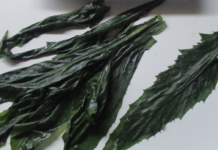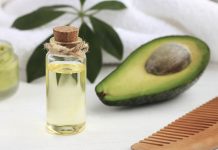There are many emergency situations that can be handled at home if you know how to treat them. Preparing ahead for the most common medical emergencies helps you to be able to manage them efficiently and allows you to relax knowing you have it under control.
Let me remind you first that I am not a medical doctor, and that I have no medical experience. I am a writer and a researcher. Many of these conditions affect my family members and I, so I started taking the time to find out which treatments work best.
Not every case is the same, however, and every person is different, so you can do your own research and choose the right treatments for you and your family.
Natural Diabetes Care
Type II Diabetes can be very well regulated using a combination of diet , exercise, and herbal remedies. After consulting your doctor, you can never quit taking medicine, and bear in mind that every patient is different.
Whether you choose to try to minimize the insulin now or choose to go without it during a SHTF tragedy, a combination of a low-carbohydrate diet (ketogenic) and such herbs may be used successfully to bring down blood sugars to a safe level. It takes a while for the diet and herbs to be completely successful, probably weeks, but quickly falling down in blood sugar.


For high blood sugar (hyperglycemia), when used with low carbohydrate diet, exercise can help bring down the blood sugar levels. These herbs, which stimulate insulin production and lower blood glucose levels, should also be added: Bitter gourd, Fenugreek seeds (increase insulin production), Indian gooseberry (Amla), Curry leaves, Aloe Vera gel, Gymnema Sylvestre, Rosemary, Oregano, Sage, Garlic, Ginger.
When the blood sugar drops too low (hypoglycemia), drinking a small amount of juice or consuming a small piece of fruit will bring it up quickly. When this happens to you, use frequently stabilizing herbs and keep an eye on your blood sugar levels. Cinnamon, Holy Basil, Aloe Vera gel, Cloves, Rosemary, Oregano, Pepper, Garlic , Ginger, Turmeric, Cayenne, Ginseng, Ashwagandha can be used to control blood sugar levels.
Daily use of these herbs is expected for best results. Luckily, there’s also a healthy way to add some spice and flavor to your meal. Using them frequently in healthy recipes and teas to see immediate and long – term improvement.
Related: The States with the Most Medicinal Plants. Do You Live in One of Them?
Natural Treatments for Prostate Problems
Natural Treatments for Prostate Problems Symptoms of an enlarged prostate due to Benign Prostatic Hyperplasia (BPH) include frequent urination, getting up frequently to urinate at night, difficulty in voiding, urinary leakage, and urinary tract infections.
For many people, a combination of herbs, vitamins, and minerals is effective for treating BPH. The Herbs that are the most effective are:
- Saw Palmetto-is high in beta Sitosterol and plant sterols that relieve BPH symptoms.
Pygeum Bark – helps drain the bladder, and increases the flow of urine. - Stinging Nettle
- Garlic, Echinacea, and Goldenseal-reduce BPH inflammation.
- Quercetine blocks prostate cancer cells from developing and reduces signs of prostate infection. Quercetin is contained in fruits and vegetables, or can be purchased as an addition.
- Cranberries or cranberry juice – are helpful in preventing BPH-caused urinary tract infections.
- Take Calcium, Vitamin B6 and Vitamin D3.
How to Treat Migraines Naturally
Migraines can weaken, and often start without warning. There are several natural remedies which people swear by for migraines.
The problem is every remedy doesn’t work for everyone. If you suffer from migraines, preventing them is your first line of defense.
Keep a food diary to help uncover any food triggers and add green leafy vegetables to your eating plan. Most migraine sufferers notice that each morning a green smoothie significantly decreases the amount of migraines they have.


Herbal Migraine Treatments
- Basil is an analgesic, antispasmodic, muscle relaxing and warming herb that decreases stress and muscle tightness caused by headaches. This also eliminates migraine-induced nausea and vomiting. Take Basil as a tea for 5 to 10 minutes, steeping the basil leaves in hot water. You can also chew the essential basil oil on fresh basil leaves or massage it into your forehead and temple when a headache threatens.
- Sweet Bay (Laurus nobilis) contains natural anti-inflammatory compounds that are effective for relieving migraines. Steep the leaves to make a tea, add them to a bath, or apply the oil to the forehead to relieve pain.
- Butterbur (Petasites hybridus) is another anti-inflammatory that relaxes the blood vessels and helps restore normal blood flow to the brain. Use butterbur extract from root of the plant. This occurs most frequently in capsule form.
- Chamomile (Chamaemelum nobile) functions as a sedative and a moderate anti-inflammatory. This decreases muscle spasms and stress, which often cause headaches from migraine. Use chamomile as a tea, or make a compress with a few drops of essential oil and add to the area affected.
- Feverfew (Taacetum parthenium), also known as wild chamomile, is an anti-inflammatory and analgesic with a mild sedative effect. Use it in teas or tinctures, or take it in capsule form.
- Lavender has long been used to alleviate headache. Rub a few drops of distilled lavender oil on the temples or inhale a soothing release from the fragrance.
- Mint (Mentha piperita) is also known as peppermint and is an ideal tonic for migraine. Sprinkle on Peppermint tea or make a cold compress with a few drops of distilled mint oil and apply to the forehead directly.
- Rosemary (Rosmarinus Officinalis) warms the body and decreases the migraine-causing tension and stress. Fill the temples and neck with the essential oil or add it to a warm bath.
Natural Insomnia Treatments
Insomnia is relatively common, particularly in times of crisis. But when insomnia continues, it can become a medical emergency night after night. If you have trouble falling asleep try this lifestyle combination of herbal remedies.
- Switch off the regular television and other light-emitting devices and listen to soothing music. Set the music to automatically switch off and relax.
- Practice the gentle stretching exercises for 15 minutes before bed. Stretching exercises or gentle yoga will loosen your muscles and prepare you for sleep.
- Go to bed and get up at the same time each day. Regular sleeping patterns help to train the body.


- Before bed, enjoy some tart cherry juice. Cherry juice is naturally rich in melatonin, which helps to control sleep cycles in your bodies.
- Chamomile is a sedative herb deemed safe for both children and adults. Use a few drops of oil for your bathwater or drink it as a tea.
- Lavender has long been used under the pillow to promote sleep, but it can also be used as a tea, or put a few drops of liquid lavender oil into a diffuser in the bedroom.
- Passion flowers (Passiflora incarnata) are useful for insomnia caused by stress, anxiety or fatigue of the nerves. This is a natural sedative, suitable for children and adults with mild sleeping issues. Take tea or tincture if you like.
- Valeriana (Valeriana Officinalis) is strongly recommended for insomnia and restlessness. It has a sedative effect and makes the user sleep longer and fall asleep. Take valerian as a tincture or a tea.
- Wild Lettuce (Lactuca Virosa) has mild sedative effects, which are useful in insomnia treatment. This is safe for children to use. Use wild lettuce as a tincture.
- California Poppy (Escholzia Californica) is a mild sedative for pain relief and sleep promotion. It’s commonly used in formulas for insomnia to help you relax and reduce anxiety. Use the California poppy as a tincture or tea.
Natural Pain Relief
I suggest a number of treatments for pain relief, since getting relief is always based on the type of pain you feel. These are the top herbs that I suggest to keep on hand to alleviate pain:
Anti-inflammatory Herbs
They treat and relieve pain in the muscles, joints or tendons caused by inflammation. Which includes arthritis pain, fibromyalgia, pain in the nerves and back pain. Such herbs are: ginger, turmeric, curry, boswellia, capsaicin (found in peppers and topically applied), clove oil (topically applied, perfect for toothache), bromelain, and devil’s claw.
Willow Bark
This is another anti-inflammatory which is a good general killer for pain. It can be used to treat headaches, muscle aches, back pain, arthritis and osteoarthritis, and other pain caused by infection, inflammation, or other causes. Willow Bark contains aspirin which is natural.
Turmeric
Turmeric may be used to relieve pain in the stomach, indigestion, ulcers, cancer pain and skin conditions. It eases pain and inflammation.
Wild Lettuce (Lactuca sativa)
Wild lettuce, which is also known as lettuce opium because of its ability to relieve pain, can be used topically and orally as a narcotic replacement. This is a mild hypnotic and sedative.
Related: 10 Must Have Natural Remedies for Preppers
Treating High Cholesterol Naturally
High cholesterol also correlates with heart disease and inflammation. The effort to keep the cholesterol levels within the limits is worthwhile.
The herbs mentioned above are also useful in the treatment of high cholesterol and inflammation for treating blood sugar problems. In addition, these herbs are particularly helpful in reducing cholesterol and heart disease: Astragalus, Hawthorn, Garlic, Flaxseed.
Natural Constipation Relief
It can become very uncomfortable and may be a medical emergency if constipation goes on for too long or becomes chronic.
Natural laxatives function by drawing fluid into the bowel and causing contractions in the muscles which move the bowel.
The first treatment tried should be consuming higher fiber foods like fruits, vegetables, legumes, nuts, and seed. Nevertheless do not overdo it all at once. Too many foods high in fibre can cause GI pain.
These herbs are useful for relieving severe or chronic constipation when consuming increased fiber foods does not do the job:
- Buckthorn (Cascara sagrada)-does the job, but along the way it can cause abdominal pain. Using it only for serious circumstances and short term use.
- Psyllium-a member of the plantain species, is a natural fiber used for constipation.
- Rhubarb – best known for its use in pies, is a natural constipation cure. This has a laxative effect and protects against diarrhea. Rhubarb is good for short-term use.
- Slippery elm – is a source of mucilage which coats the gastro-intestinal tract and relieves constipation by stimulating the nerves in the GI tract.
Treating Heart Problems Naturally
Heart problems usually involve a group of health issues including high blood pressure, high cholesterol and sometimes arrythmias or even heart failure. They are also often associated with elevated blood sugar and other health issues.It is also necessary to treat these symptoms to help the heart become healthy, so also refer to the above conditions.
Goldenseal is useful for congestive heart failure treatment. This acts as a natural diuretic to remove excess fluid from the body, and promotes blood vessel dilation and circulation.
Omega-3 Oils such as fish oil tend to lower the risk of irregular heart rhythms, palpitations and A-Fib. It also helps to lower hypertension.
Hawthorn helps strengthen the muscle, helps lower blood pressure, reduces chest pain and reduces arteriosclerosis. It increases its pumping capacity and maintains a normal rhythm.
Vitamin D deficiency increases the risk of heart disease and heart failure. Avoid this risk by usually having plenty of vitamin D in food, taken in the form of D3, or naturally, by spending time in the sunlight.
Natural Treatment for Allergies
Allergies can make you especially miserable during pollen season. Many allergies, however, continue throughout the year, and can be very debilitating for those affected. Allergy medications can produce a rebound effect for some people, and can make the problem worse.
Here are some normal ways of managing allergies:
1. Avoid the allergen. This is more practical for food allergies but it is also applied by many people to air borne allergens. When allergens are high, they remain indoors and use an air filter.


2. Before symptoms hit, clean the nasal passages with salt water. You can reduce allergy symptoms by washing away pollen and other allergenic symptoms.
3. Exercise outdoors in the evening, when pollen counts are lower.
4. Drink bone broth from chicken, beef, or lamb. Not only is it healthy for you, but also helps to reduce the mucus in the nasal passages and to reduce inflammation.
5. Apple cider vinegar will improve the immune system. It removes the mucus and helps the immune system.
6. Stinging Nettle (Urtica dioica) is an effective antihistamine. This counteracts with swelling and allergic reactions.
7. Ginger, garlic, horseradish and onion help break down and eliminate toxins from the body.
8. Cassia Cinnamon taken with Spanish needles (Bidens Pilosa) work well together in reducing allergic rhinitis and inflammation. Start taking cinnamon and Spanish needles a week or two before allergy season starts and continue taking them throughout the season for best results.
9. Cinnamon and honey are used for mild allergy symptoms to alleviate itchy eyes, sneezing and coughing.
Treating Auto-Immune Conditions Naturally
Even with strong drugs, autoimmune diseases can be hard to manage. There is, however, much that can obviously be done to alleviate some of the symptoms and effects of these diseases.
Proper diet is the first line of defence against autoimmune diseases. A good diet can help ease the pain and inflammation and start the process of healing. Stop caffeine, tobacco, sugar and dairy. More fruits, vegetables, healthy fats, and fish are included. Eat non-inflammatory foods.
Avoid gluten and hidden food allergies. An elimination diet can help you discover sensitivities and allergies to secret foods.
Take supplements such as omega-3 or fish oil, vitamins C and D, probiotics, and the above described anti-inflammatory nutrients. These herbs are also worth trying:
- Borage oil is high in GLA, a fatty omega-6 acid which helps to reduce inflammation.
- Cat’s claw is anti-inflammatory, and is known to minimize discomfort and swelling.
- Evening Primrose is rich in GLA, lowering inflammation.
- Ginger has a reputation for its anti-inflammatory effects. This is beneficial to the joints and other body structures.
- Green tea is rich in antioxidants and anti-inflammatory substances. This cuts down on inflammation and swelling.
Autoimmune conditions can be challenging to treat. Each condition is different and often more than one autoimmune condition is present in patients. Reducing inflammation is important in the taming of autoimmune conditions.
You will be ready by stocking up on the herbs required for these conditions now, should one of these conditions impact a family member. Planting the herbs in your medicinal garden is an even better alternative, ready for use as needed. Nevertheless do not wait until you need these herbs. Most are exceptionally safe for everyday use. Do the homework and plan to find safer alternatives to conventional pharmaceutical products.






















